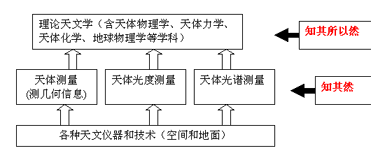Project Leader: Zhaoxiang Qi
The members of the project group:Guangli Wang, Jinling Li, Li Guo, Shilong Liao, Xiaofen Zhao, Liang Li, Zhibin Zhang, Nianchuan Jian, Zhengxiong Sun, Cong Liu, Chengkai Wan
Main research directions:
Astronomy is a discipline primarily focused on observing and explaining the material state and evolution of celestial bodies. It can be divided into two basic branches: observational astronomy and theoretical astronomy. Wherein observational astronomy utilizes various astronomical instruments and technologies to obtain various types of information in terms of celestial bodies ('knowing their nature'). Theoretical astronomy, on the other hand, uses mathematical and physical/chemical theories as basic tools, which combines the data obtained from observational astronomy to analyze and explain the evolution laws of celestial bodies ('knowing why'). Astrometry mainly measures the geometric information of celestial bodies (including parameters such as three-dimensional position, three-dimensional motion velocity, size and shape of celestial bodies), and together with photometric and spectral measurements of celestial bodies, which forms observational astronomy and provides data for theoretical astronomical research. The close cooperation with upstream (astronomical instruments and technology) and downstream (theoretical astronomy research and the requirements of applications in national defense and aerospace fields) is a prerequisite for the sustainable development of astrometry. The following figure shows the three levels of astronomy.

Speaker:Prof. Dr. Wladimir Neumann
Time:21/08/2025 (Thursday) 15:00
Location:Small conference room 3rd floor
Speaker:焦艺菲博士
Time:2025年8月15日 (周五) 14:00
Location:天文大厦三楼小会议室
Speaker:Prof. Daniel Hestroffer
Time:July 22 (Tuesday) 14:00,2025
Location:天文大厦三楼小会议室
Speaker:徐麒 博士 (国家空间科学中心)
Time:2025年 7 月 24日(周四) 上午10:30
Location:比邻星协同交流室A
Speaker:Andrzej Krankowski
Time:2025年7月21日上午10:00
Location:天文大厦三楼中会议室